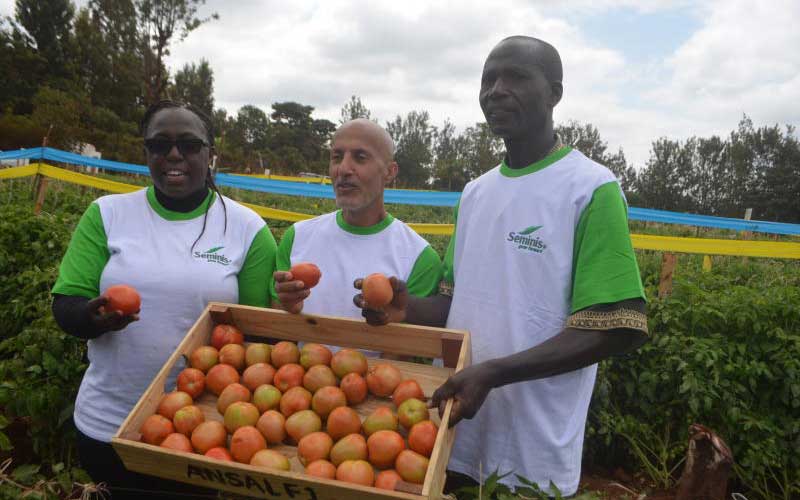×
The Standard e-Paper
Stay Informed, Even Offline

Tomato farmers in Kenya have received a major boost following the launch of a new tomato variety that is resistant to bacterial wilt.
The Seminis Tomato Ansal, a hybrid variety, was first introduced to farmers late last year after a one-year period of on-station trials and off-station demonstrations plots with select farmers in Kirinyaga, Loitokitok and Nyanza.